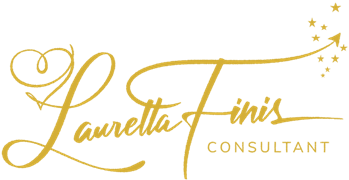Blog
7 Tips on setting up GST and lodging BAS in QuickBooks Online
- August 3, 2022
- Posted by: Lauretta Finis
- Category: ACCOUNTING & BOOKKEEPING

Running your business is made easier with streamlining your financials using QuickBooks Online and lodging your BAS.
One of the first things to consider is whether you are registered for GST. Here Lauretta walks you through 7 tips when setting up you new business QuickBooks Online account when it comes to GST, PAYG and other taxes you may be paying to the Australian Taxation Office.
Tip 1
If you’re not registered for GST, DO NOT set up GST in the GST Centre from the left-hand-side navigation bar.
This will save you a great deal of time having to enter the Out of Scope (No GST Reportable) GST code for all transactions.

Tip 2
If you have set up GST and you are not registered, you can default the code from the company preferences to Out of Scope (no GST)
From the Gear Icon, click Settings, then Company Settings, then Advanced, and then Default tax rate selection.

Tip 3
GST needs to be set up correctly from the initial set-up.
- **If you’re unsure, please seek your BAS agent or Accountant advice**
I have seen a lot of mistakes and issues with the set-up of the GST centre and taxes, that have either ended up with BAS under payments and/or over payments, as the GST method was set incorrectly as either Accrual or Cash.
Biggest tip – you need to understand your BAS lodgement, is it quarterly or monthly? Some of the important things you need to understand prior to setup of your BAS are as follows BUT please seek advice if you unsure on any setup:
- Lodging frequency: are you monthly, quarterly or yearly?
- GST method: Accrual or Cash method?
- GST Codes: are you using the Simpler or Detailed codes?
- PAYG Withholding: do you pay PAYG for your employees and do you pay Monthly (which is knows as IAS reporting) or Quarterly, paying your PAYG withholding with your quarterly BAS?
- Company Income tax: are you paying company PAYG instalments. Or if you’re a sole trader, are you paying PAYG instalments?
- Other taxes: do you pay Fringe Benefits tax (FBT) , Fuel tax, Luxury Car tax or Wine Equalisation tax (WET)?

Tip 4
Ensure all your bank and credit card accounts have been reconciled.
EVERY business expense, payment, sales payments, sales receipts, cash expense, payments and sales should be posted in your QuickBooks Online for the BAS period PRIOR to beginning your BAS lodgement.
If these have not been completed and reconciled, you will not pick up all the correct business transactions that you can claim and you may miss out on credits on your BAS.
This is especially important if you are on the Accruals GST method. This also means you could miss out on payments for your services and on GST collected and Paid, you will have to pay this back at some point.
If you’re unsure on how to reconcile your bank accounts please review our blog: how and why you need to reconcile your bank accounts
Tip 5
Check your BAS reports for GST codes, and when completing your BAS in QuickBooks Online, remember to click the “Mark as Lodged” button in the ‘Completing a BAS” window.
If you have had any transactions that you have amended, deleted or changed in any manner, the transactions will pop up in the exemption report or GST Amendment Report as it is called now, these will be shown in your next BAS period.
These amounts should be reported to the ATO for the next new BAS period. These transactions will be added or subtracted to the GST on Sales or GST on purchases amount and will be reflected on the bottom figure of refund or payment due on the BAS.
When you select the Prepare BAS button, and go through the BAS wizard, on the last page, you will get a summary, this will show you a snapshot of your lodgement, click the print icon and keep for your records then choose the Mark as Lodged.
In QuickBooks this will generate a BAS Journal to reduce the BAS liabilities account in the Balance Sheet and moves the amount to be paid or refunded into the ATO Clearing account.
This will also close the BAS period and any changes made to the transactions from this period, and prior periods that are changed later will be shown in the GST exception report.
Tip 6
Installment Activity Statement or IAS Reporting – Monthly reporting for PAYG.
The PAYG Tax withheld total salary (W1) and Amount withheld (W2) in the BAS Summary and BAS Completed worksheet is picked up from the journals created upon completing a payroll. See below for a completed pay run journal:
FYI: W1 and W2 refer to fields within the BAS Statement, the term is quite familiar to any GST registered business.
QuickBooks Online will push through the amounts from KeyPay Payroll from your Pay runs of your employee wages, this will have the total amounts in both W1 and W2 for the entire quarter. **Check your Detailed report for accuracy.
Tip 7
Enable BAS E-lodgement for QuickBooks
If you connect your QuickBooks Online to the ATO, this will create a direct link to lodge your BAS which will save you time.
The ATO can only access what is lodged for BAS with them directly.
Benefits of connecting QuickBooks to the ATO for e-lodgement include:
- Automatically import Income Tax and Fringe Benefit Tax Installments
- Lodge IAS and BAS directly from QuickBooks Online
Click here to read more on how to enable your BAS lodgement in QuickBooks: How to enable your e-lodgements from your BAS Centre
GST and BAS lodgements can be easily managed, but, it can also be a huge challenge if not set up correctly.
It is all in the set-up and processes you take.
If you are unsure, contact us for QuickBooks Support & Help.
